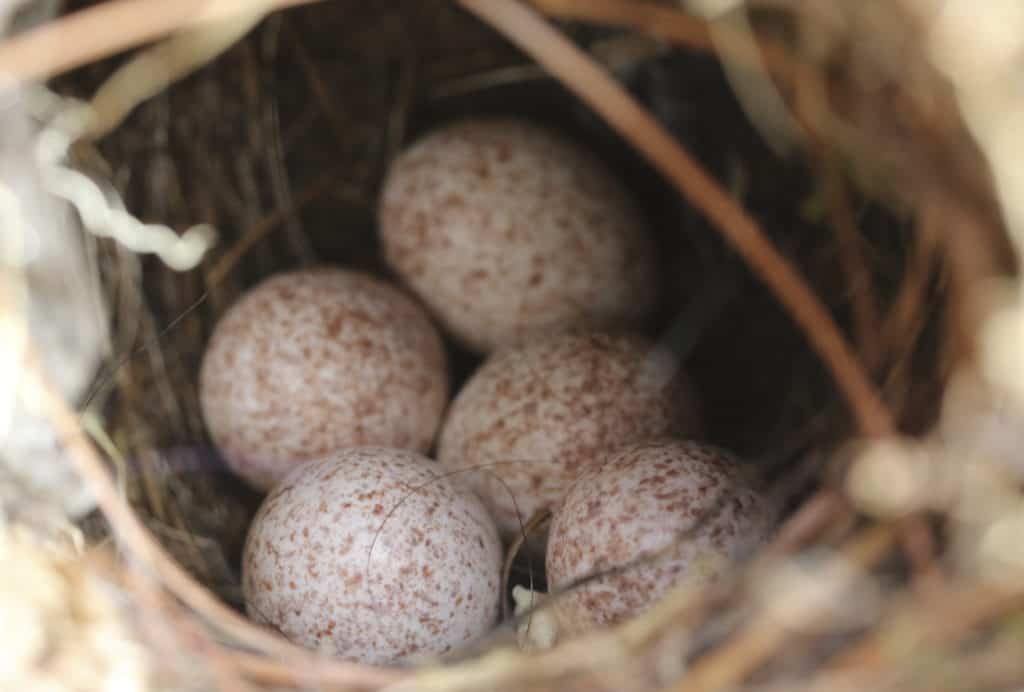Creature Feature

Handle Nesting Birds with Care
Over the winter, I removed the top window of the door to our screened-in porch to take photos. However, by the middle of March, I saw a couple of Carolina wrens flying inside the porch and making a nest in a planter.
To get the birds off the porch, I moved the planter toward the door, a yard closer every day. Eventually, the planter was outside and the window was back in the door. Now, there are five young birds in the nest.
I have been asked what to do when a bird’s nest is disturbed or even when a nestling falls out. Birds commonly seen in a suburban environment, like wrens, cardinals, sparrows, bluebirds, robins and finches, will quickly build another nest when an empty one is destroyed. If there are eggs or nestlings, many birds will adapt and tolerate a nest being quickly put back in place. If a nestling is out of the nest for over 24 hours it can become weak or be injured and won’t be able to compete for food as well as its siblings. Its survival is less certain but it is still recommended to try to get it back in the nest.
A wildlife specialist needs to be called for issues with birds of prey. Eagles, hawks, owls and falcons are more sensitive to human intervention and will abandon empty nests if bothered. Also, the nestlings are aggressive and pick on the weakest so the fallen nestling needs to be replaced quickly.
Birds of prey can be dangerous nest defenders. Great horned owls are particularly dangerous. A great horned owlet on the ground shouldn’t be approached. The mother flies quickly and silently and usually aims for the back of the head and neck when attacking.
Osprey are a special case. Greg Kearns, a Prince Georges County naturalist, has taken osprey nestlings that are weakened and being overpowered by their siblings and placed them in nests with a female who has lost her young or has similar sized nestlings. These young frequently are adopted and nurtured by the new female.
Always call the Maryland DNR for help with birds of prey (1-877-620-8DNR) or a rescue group like Back to the Wild Rescue and Rehabilitation (http://backtothewildrescueandrehab.org/).
